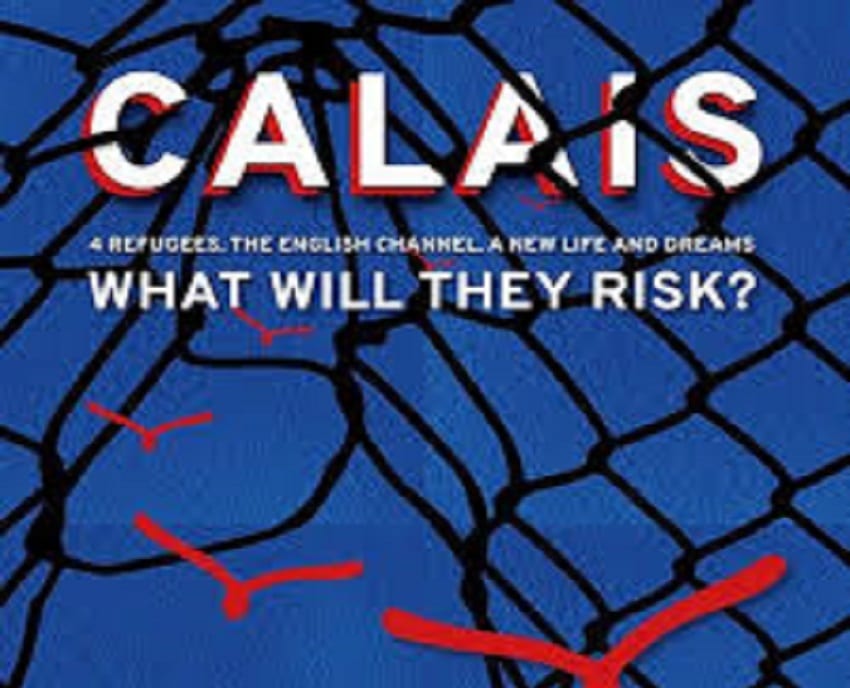Calais is a new play based on the experiences of the writer, Dermot Dolan, as a volunteer in the Jungle, Calais, this year. This is a pointed examination of the conditions at the camp, and those who find themselves caught there, through the eyes of four young Eritrean asylum seekers, all friends. The play is staged in the small basement theatre of the Curtains Up pub. The stage is strewed with litter – discarded clothing, plastic plates, bottles, other rubbish and a pink soft toy. It is dark; there is the constant if unseen threat of the police rounding them up and beating them. It is cold.
Each of them have made the journey from their homeland, fleeing torture and imprisonment. They’ve come the route many come, via the desert and Libya and the extortionate people smugglers; three of them nearly drowned when their boat went down in the Mediterranean; finally they reach Calais where they are stuck. We hear their stories, flashbacks and nightmares; what their families have had to sacrifice for them to reach their destination. Their dreams of England sustain them. England is innocently and necessarily seen as El Dorado where they will have jobs and safety, where people are ‘honourable’ and the streets are paved of gold. In one of the more light-hearted moments of the play, Ahmed (Moe Idris) discusses this – he has worked in the gold mines of Eritrea; none of the gold is there and he’s heard that streets of some western countries are paved with it.
Tariq (Michael Oku) after many failed attempts to smuggle himself out of Calais and consequently many beatings from the police every time he is caught, has made up his mind to make one final bid for freedom. The flames of his hopes are dying and he is afraid of this. Ahmed is a gentle soul and a fellow Muslim; he is sustained by his dreams but also increasingly haunted by those that drowned round him when the boat he, Tariq and Birham (Christien Bart-Gittens) were on capsized. Birham, likewise, is sustained by his dreams but more by his religion – he is Christian and wants to become a minister. Then there is Flaven (Linda Gathu), though nominally Muslim, she has lost her religion. She dreams of setting up an Eritrean café and of getting justice for the wrongs done to her and to others.
Dreams and religion play conflicting roles. Dreams sustain, they don’t harm anyone, but they come with the nightmares they all suffer, and the one they are to some extent stuck in. Religion seems to be a prop for both Birham and Ahmed yet it is Flaven and Tariq who rely on it much less, or not at all, who seem stronger.
There are between 4000 and 6000 people stranded in the Jungle. It is too easy for the ‘migration problem’ to be portrayed as a singular mass. This play importantly personalises the people who, in desperation for a life worth living, have been able to escape, though not without huge price, the hell on earth that was their lives back home. And these are just four people represented here.
While the play could do with a little tightening up here and there – for example the scene where Ahmed is distraught could be a tad shorter, this is a thought-provoking and timely piece of theatre well-staged and with good performances, especially from Oka and Idris.

